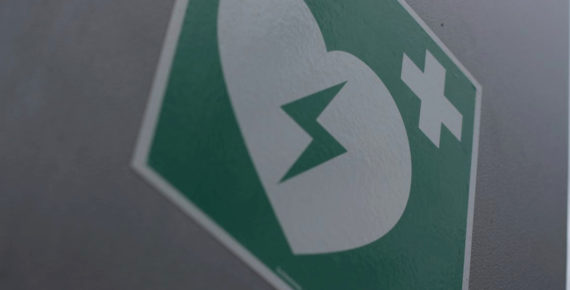
Although heart attacks and sudden cardiac arrest are often synonymous with one another, they are entirely different. Unfortunately, not everyone is aware of the distinctions between the two heart problems. But what exactly are the differences and what are the signs that you or someone else needs emergency medical attention?
One of the biggest distinctions between the two emergencies is that a heart attack is a circulatory issue whereas cardiac arrest is an electrical issue.
Essentially a sudden cardiac arrest occurs when the electrical signals malfunction, causing the blood to stop pumping around the body. This means the brain and other vital organs stop receiving blood. Medical attention is critical as without this flow of blood your life is on the line. You most likely will only have a few minutes left before falling unconscious and you stop breathing. In this situation, dial 999, and attempt CPR. Following this, the use of a defibrillator can make all the difference between life and death.
On the other hand, a heart attack occurs when the blood flow to the heart becomes blocked, which in turn deprives parts of the heart of oxygen-rich blood. Unlike a cardiac arrest, the heart will continue to beat throughout the attack and will likely occur after a slow build of symptoms, like what you would typically see in movies and TV shows. It creeps up as you experience upper body pain in the chest, shoulders, and upper arms, and you start to feel breathless. If you can identify these symptoms early on, seek medical attention as soon as possible. If a heart attack occurs, medical attention, as with a cardiac arrest, is critical and makes all the difference between life, death, and the long-term damage that an attack can cause afterwards.
There are several causes of a heart attack including:
Research shows that 1 in 6 adults in the UK are smokers. This causes 100,000 smoking-related deaths per year in the UK alone, with 20,000 heart and circulatory related deaths attributed to smoking. Activities such as smoking and overeating are controllable factors, and every individual should do their best to prevent heart problems by not smoking, eating a balanced diet, and staying active.
On the other hand, causes of sudden cardiac arrests include:
Causes can also include electrocution, drug overdose, and the loss of large amounts of blood. Globally, 7 million people per year will have a cardiac arrest, and with the survival rate sitting at 5-10%, it’s vital that more people are made aware of what a cardiac arrest is and what you should do in an emergency. Defibrillators can make all the difference, but there aren’t enough of them in the UK.
At Defib365, we want to ensure that individuals across the UK have access to specialist equipment that can help to save a life without putting a strain on your bank account. Whether you would prefer to lease or buy our products, get in touch today on 0333 050 6649 to find out how we can help you.

A defibrillator might not seem like essential office equipment. But in an emergency, they could be the difference between life and death. Due to the growing awareness of the danger of sudden cardiac
Read More
We associate heart problems with poor lifestyle choices – unhealthy diet, lack of exercise, chronic stress – that sort of thing. However, science paints a more complex picture of heart health. Genetics also
Read More
Sudden cardiac arrests (SCAs) are like electrical malfunctions. They happen when the signal to your heart stops. As a result, the heart can’t pump blood to the brain and many fall unconscious. There
Read More
It’s one of life’s unfortunately grim statistics: there are more than 30,000 out of hospital cardiac arrests in the UK each year. Without rapid treatment using CPR and a defibrillator, chances of survival
Read More